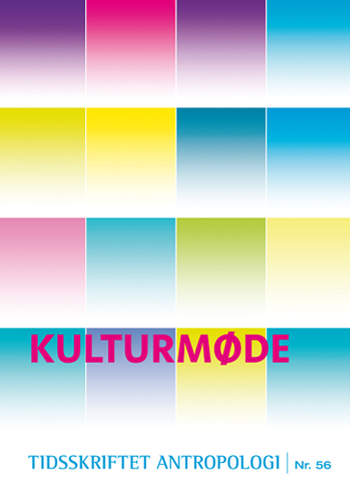‘KULTUR’ OG ‘MØDE’: Gensyn med amerikanske akkulturationsstudier 1936-1963
DOI:
https://doi.org/10.7146/ta.v0i56.106771Resumé
The author traces the conceptualization of culture contact that emerged in
American anthropology in the early 20th century and became the focus of ample
investigative initiatives in the decades before and after World War II – only to
vanish into blue air in the 1960s, leaving barely a fingerprint in the textbooks of
the 21st century. Based on the published reports from research seminars on
acculturation in the 1930s and -50s, the author exposes the concepts of culture
contact and change in the heyday of these studies and considers the problems
they posed to the scholars. At the outset, fieldwork and the importance of a
historical perspective had been stressed as the bases for understanding crosscultural
dynamics. Yet, emphasis gradually shifted to synchronic functional studies,
resulting in a ‘theoretical lag’, as some leading scholars saw it. Comparative
research allowed the formulation of preliminary typologies, the major ones being
‘incorporation’, ‘assimilation’, ‘fusion’, and ‘compartmentalization’. From these
typologies more specialized vocabulary developed. Scholars began to realize that
the generalizations which emerged had to do with types of contact conditions
rather than types of culture, but most of them hesitated to follow up on this point.
They disagreed over the definition of culture as an autonomous system that a
majority ascribed to, while dissidents felt that the idea of seeing culture as an
entity independent of the human beings was counterproductive to analysis of
processes of cross-cultural contact and change. The ambitious grand scale acculturation
research plan gradually withered. It never attained a hypothesis or a
paradigm sufficiently clear-cut to inspire continuing investigation. Some scholars
had become aware that unequal power relations made a salient characteristic of
contact situations and trajectories, but at the height of the Cold War, they hesitated
to pursue this issue. Eventually the preoccupation with acculturation faded away,
and scholars moved into other areas of anthropological research.
Downloads
Publiceret
Citation/Eksport
Nummer
Sektion
Licens
Ophavsretten til artiklerne i Tidsskriftet Antropologi tilfalder forfatteren.
Artikler publiceret i Tidsskriftet Antropologi må citeres, downloades og videresendes for ikke-kommerciel brug, under forudsætning af normal akademisk reference til forfatter(e) samt tidsskrift, årgang, nummer og sider. Artiklerne må kun genudgives med eksplicit tilladelse fra forfatter(e) og tidsskriftet.


